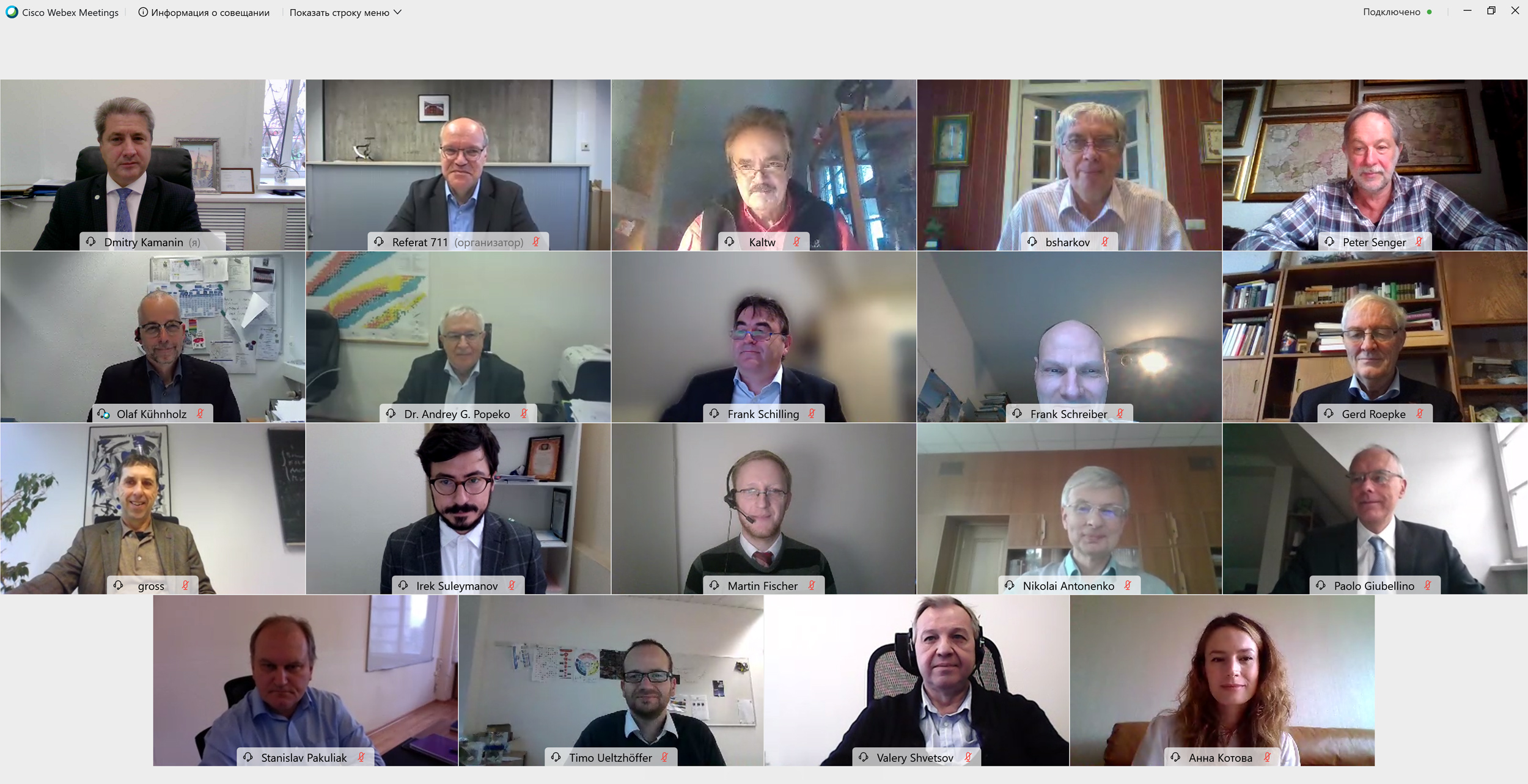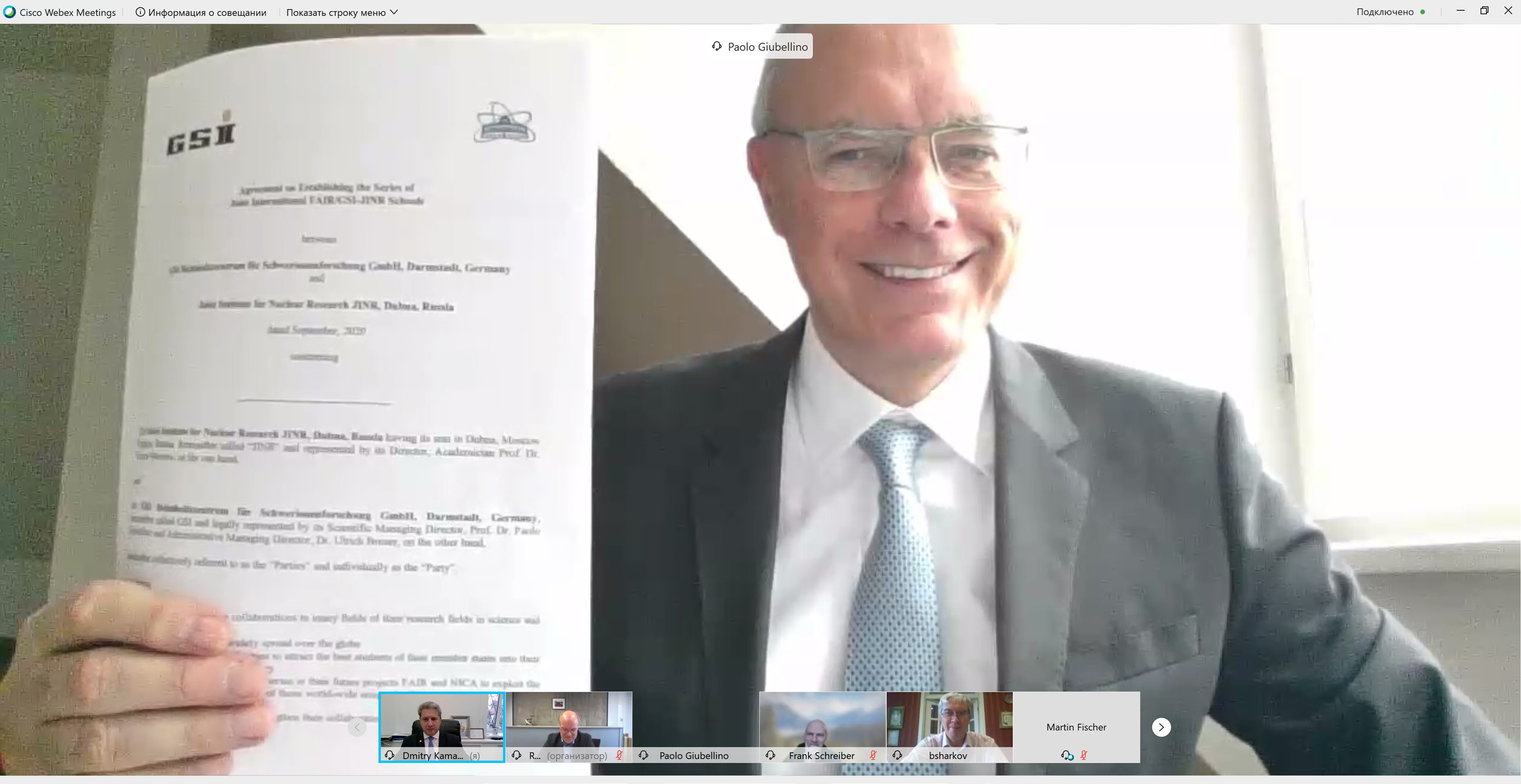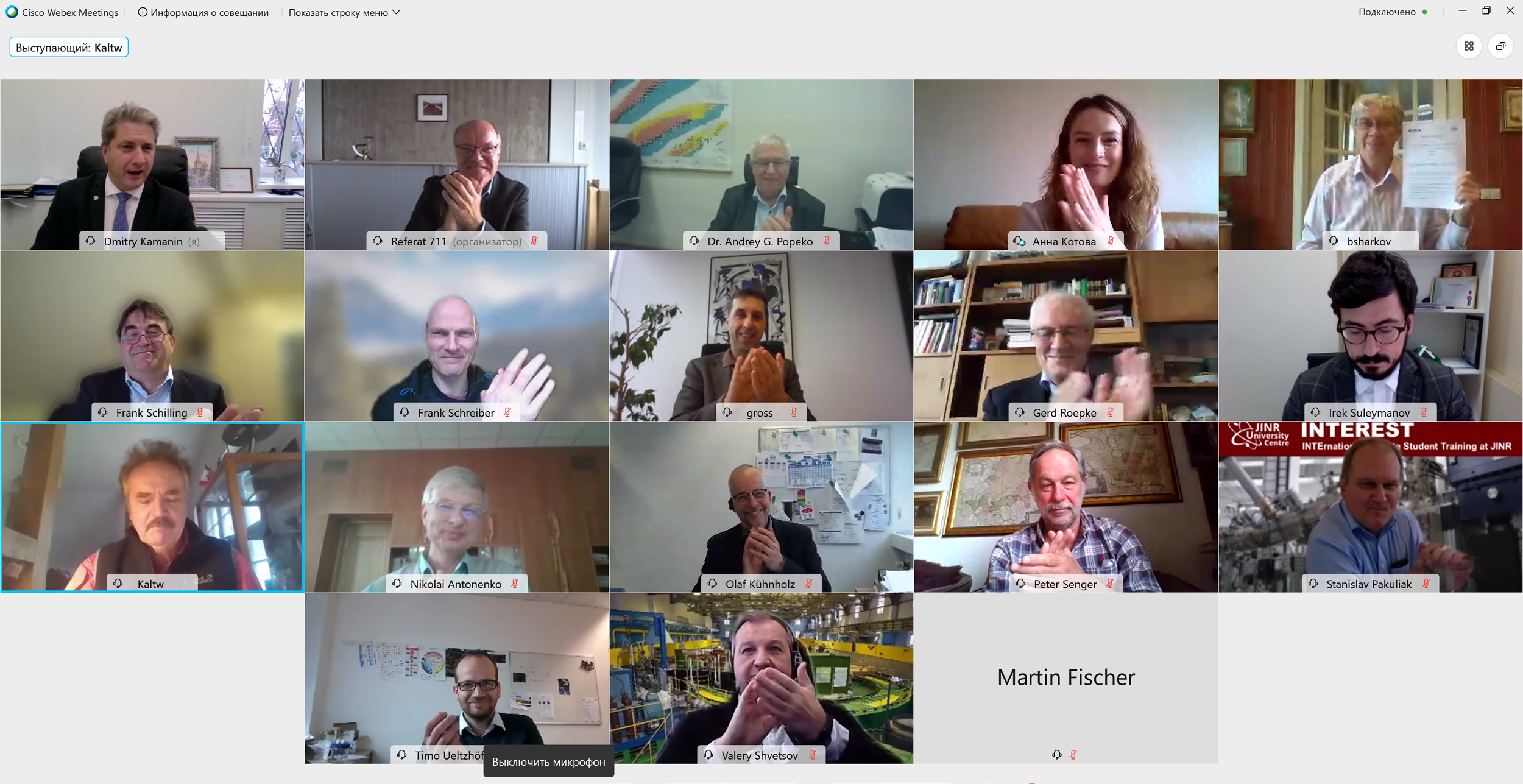Meeting 2021 with new cooperation programme
News, 05 November 2020
On 30 October 2020, the 27th regular meeting of the Coordination Committee on the implementation of the Agreement between the German Federal Ministry of Education and Research (BMBF) and JINR was held dedicated to the development of a new cooperation format. The German delegation was headed by BMBF Coordinator for cooperation with JINR Jürgen Kroseberg representing the department “Universe and matter”. Vice-Director Boris Sharkov co-chaired the meeting on behalf of JINR. The meeting took place in the video conference format.
The 26th regular of the Coordination Committee held on 1 July and a number of working meetings held this year focused on the in-detail discussion of the new format aimed, first of all, to attract scientific youth. As a result, the scientific programme of cooperation will be formed in the frames of three Programmes: the Heisenberg-Landau cooperation programme in the fields of theoretical physics, the Neutron programme aimed at the support of the SKAT and EPSILON spectrometers, as well as a large-scale and diverse Programme of young scientists. Joint scientific projects on priority fields of the JINR cooperation with German scientific organizations and universities remain the key structural units of the Programmes. However, both parties will make special efforts to attract young scientist and to promote their scientific careers in the framework of the projects’ implementation. A specially established steering committee will be responsible for the operational management of each Programme.
The coordination committee discussed the financing issues of the programmes, peculiarities of work during a two-year period of transition to a new cooperation format, the results of current joint activities and the procedure for reviewing applications for joint projects up to the end of this year. It is expected to finish applications processing, including for new projects, by mid-December.
The key event of the meeting of the Coordination Committee was the signing of an agreement between JINR and FAIR/GSI on the establishment of a series of DD (Dubna-Darmstadt) joint international schools. Boris Sharkov and FAIR/GSI Science Director Paolo Giubellino signed the document. The agreement is intended to attract the best young researchers of the JINR and FAIR Member States to the rich science and technology field both organizations are engaged in. The organizers find it important that in the framework of an 8-day programme of the School both the experiment and the theory are presented covering, in particular, the topics of hadron and nuclear physics, atomic physics, plasma physics, material sciences, biophysics and radiation medicine, accelerator physics, detector studies and developments, micro/nanoelectronics, information technologies and high-performance computing, etc. The document provides financing of the school by both parties.
Boris Sharkov said the following in an interview to the Institute’s mass media about the importance of the document and results of the past Committee: “Organization of the DD (Dubna-Darmstadt) annual Summer School is a joint initiative of JINR and our partners from FAIR/GSI. The School is considered by its organizers as an efficient tool to attract young researchers to promising projects in both friendly research centres. In fact, the scientific topics of JINR and our colleagues from Darmstadt overlap in a number of areas of scientific research: nuclear physics, physics of dense baryonic matter, hadron physics, radiation biology, material sciences, accelerator technologies, a wide range of applied tasks. Both institutes – JINR and FAIR/GSI – are international, so citizens of all the member states of these organizations may take part in the School. Moreover, holding Schools is possible in the territory of the member states. Both institutes implement large-scale scientific and research projects, create the mega-science research infrastructure, like NICA and FAIR. That is why the scientific theme of these projects will play a special role in the programme of classes.
Participants of the school will have an exciting and, at the same time, hard work during 8 days: they will get an opportunity to listen to lectures on the most relevant and important fields of modern science. Furthermore, a significant aspect of the School’s operation will be practical classes at which students will solve real tasks under the supervision of lecturers at the end of almost each lecture day. There will be no chance to relax. That is why the selection of students will be quite strict: candidates will be supposed to present recommendations of a collaboration or a project in which they already work or would like to start working. Thus, students of the School will not only be engaged in real scientific projects but also will consolidate their participation in them thus receiving additional education in the framework of the school’s programme.
Practical organizational preparation and holding of a regular School will be entrusted to two co-directors representing both parties. They will be responsible for the selection of lecturers, strict selection of students, the choice of time and venue for holding Schools, etc. The school is financed by the parties on a parity basis and will be completely free for participants, including payment for tickets.
The organizers expect that the epidemiological situation will allow holding the first School in the 3rd quarter of 2021.”


